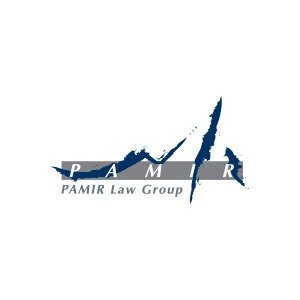Best Structured Finance Lawyers in Taipei
Share your needs with us, get contacted by law firms.
Free. Takes 2 min.
List of the best lawyers in Taipei, Taiwan
About Structured Finance Law in Taipei, Taiwan
Structured Finance involves highly complex financial transactions that go beyond traditional lending and investment structures. In Taipei, Taiwan, Structured Finance is commonly used by corporations, financial institutions, and investors to facilitate significant investments, manage risk, and access capital. Typical structured products include asset-backed securities, securitizations, collateralized debt obligations, and syndicated loans. The legal landscape in Taipei is shaped by both local regulations and international financial standards, making expert legal guidance crucial for anyone engaging in these sophisticated transactions.
Why You May Need a Lawyer
Structured Finance arrangements are multi-faceted and often entail significant legal, regulatory, and compliance challenges. You may need a lawyer if you are:
- Structuring or negotiating complex financing deals as a business or investor
- Issuing or investing in asset-backed securities or syndicated loans
- Seeking to securitize existing assets as part of a fundraising or risk management strategy
- Ensuring compliance with local and cross-border financial regulations
- Dealing with legal disputes or enforcement actions connected to structured products
- Conducting due diligence or risk assessments on potential investments
- Managing the winding down or restructuring of existing structured finance products
Lawyers versed in Structured Finance law can help you navigate these processes, minimize risks, and protect your interests in a rapidly evolving financial market.
Local Laws Overview
In Taipei, Structured Finance is subject to various legal regimes and regulatory authorities, including the Financial Supervisory Commission (FSC), the Banking Act, Securities and Exchange Act, and Civil Code. Key aspects include:
- Regulatory Oversight: The FSC supervises all financial institutions and structured finance transactions to ensure transparency, investor protection, and market stability.
- Securitization Laws: The Financial Asset Securitization Act governs how banks and companies bundle assets into tradeable securities.
- Banking and Securities Laws: The Banking Act and Securities and Exchange Act outline requirements for issuing securities, disclosure obligations, and anti-money laundering practices.
- Taxation: Structured finance transactions may have specific tax implications, including stamp duty and income tax considerations.
- Cross-Border Considerations: Foreign entities and investors are subject to additional rules on investment thresholds, foreign exchange, and capital transfers.
Understanding the intricate legal environment is critical for ensuring lawful and efficient transaction execution in structured finance.
Frequently Asked Questions
What is Structured Finance?
Structured Finance refers to sophisticated financial transactions designed to provide tailored financing solutions. These typically involve pooling and repackaging financial assets into tradable securities.
Who regulates Structured Finance in Taipei, Taiwan?
The Financial Supervisory Commission (FSC) is the primary regulator overseeing banking, insurance, securities, and other financial activities, including Structured Finance transactions.
What types of assets can be securitized?
Common assets include mortgages, auto loans, credit card receivables, corporate loans, and other income-producing assets.
Are there restrictions on foreign investors?
Yes, foreign investors must comply with foreign investment laws, as well as foreign exchange regulations. Approval from local authorities may be required depending on the transaction type and size.
What legal documentation is typically required?
Key documents include offering memoranda, trust deeds, loan agreements, security agreements, disclosure statements, and regulatory filings.
What risks should I be aware of in Structured Finance transactions?
Risks include credit risk, market risk, legal or regulatory risk, product complexity, and potential for disputes regarding rights or obligations of stakeholders.
How are disputes resolved?
Most disputes are resolved through negotiation, arbitration, or litigation in the courts of Taipei, depending on the contract terms and nature of the dispute.
Do structured finance transactions require FSC approval?
Many structured finance transactions, particularly those involving public offerings or securitization of financial assets, require prior notification or approval from the FSC.
How can due diligence help in these transactions?
Comprehensive due diligence helps identify potential legal, financial, and operational risks before entering into a transaction, ensuring full compliance and informed decision-making.
How can a lawyer assist in Structured Finance?
A lawyer can assist with transaction structuring, documentation, regulatory compliance, due diligence, negotiation, dispute resolution, and ongoing legal support to safeguard your interests.
Additional Resources
If you need further information or official guidance related to Structured Finance in Taipei, Taiwan, consider reaching out to the following bodies:
- Financial Supervisory Commission (FSC) - Main regulator of financial markets and products
- Ministry of Finance (MOF) - Responsible for taxation and fiscal policies
- Taipei Bar Association - Provides lawyer referrals and legal information
- Bankers Association of the Republic of China (BAROC) - Industry group representing local banks
- National Development Council (NDC) - Offers insights on investment policies and regulations
Next Steps
If you need legal assistance in Structured Finance matters in Taipei, Taiwan, here are some steps to consider:
- Identify your specific needs, whether structuring a transaction, conducting due diligence, or resolving a dispute
- Gather any contracts, correspondence, and relevant documents related to your issue
- Research law firms or attorneys specializing in Structured Finance in Taipei
- Schedule a consultation with a legal professional to discuss your situation and possible courses of action
- Ask about experience with similar cases and familiarity with local Structured Finance regulations
- Work closely with your lawyer throughout the process for the best possible outcome
Seeking timely legal advice can ensure compliance, minimize risks, and help you achieve your financial objectives in a complex regulatory environment.
Lawzana helps you find the best lawyers and law firms in Taipei through a curated and pre-screened list of qualified legal professionals. Our platform offers rankings and detailed profiles of attorneys and law firms, allowing you to compare based on practice areas, including Structured Finance, experience, and client feedback.
Each profile includes a description of the firm's areas of practice, client reviews, team members and partners, year of establishment, spoken languages, office locations, contact information, social media presence, and any published articles or resources. Most firms on our platform speak English and are experienced in both local and international legal matters.
Get a quote from top-rated law firms in Taipei, Taiwan — quickly, securely, and without unnecessary hassle.
Disclaimer:
The information provided on this page is for general informational purposes only and does not constitute legal advice. While we strive to ensure the accuracy and relevance of the content, legal information may change over time, and interpretations of the law can vary. You should always consult with a qualified legal professional for advice specific to your situation.
We disclaim all liability for actions taken or not taken based on the content of this page. If you believe any information is incorrect or outdated, please contact us, and we will review and update it where appropriate.
















